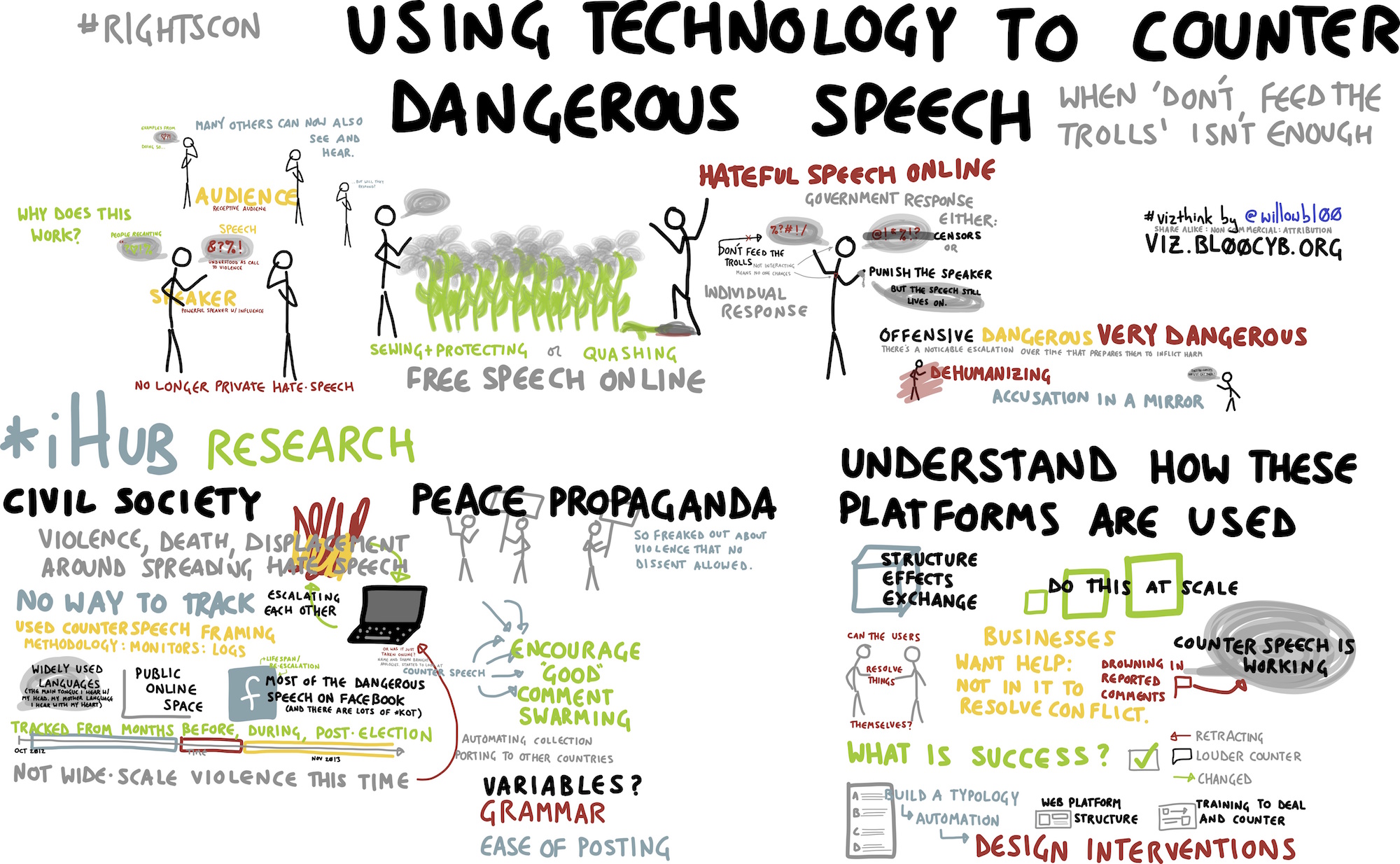Counter Speech in the Age of the Islamic State

On February 26th, The Washington Institute hosted an event on Internet Security and Privacy in the Age of the Islamic State, featuring Monika Bickert he head of global policy management at Facebook. Social media platforms are now grappling with countering terrorist extremism as well as other forms of hateful online violence such as bullying.
Social media has become a crucial component in strategic communications and public outreach across industries. Because social media dominates the landscape of online communications, analysis of emergent communication trends becomes more and more important. As Facebook grows, so does its complexity. Currently more than 80% of Facebook users are outside of the United States, resulting in a proliferation of languages used on Facebook. As by far the largest social media platform in the world by number of users, it can be the best place to begin a social media strategy and gain supporters. However, that popularity - over 1.6 billion users worldwide now - also makes it extremely difficult to track, monitor, and discourage hateful and violent messaging. While that is banned by Facebook's Community Standards, it has proven hard to eliminate.One approach that social media sites such as Facebook have taken is to rely entirely upon the community itself. Facebook users are encouraged to report any user or post that they feel have violated the site’s standards. Facebook receives about one million reports per day; aided by automated tools, experts sift through cases and delete or provide disciplinary action to those accounts that have violated these principles.
In recent years, ISIS has attempted to gain support and followers through social media - and have proven extremely effective at it. However, Facebook and other social media platforms have been going to great lengths to abolish terrorist propaganda, and ISIS has often responded by threatening Facebook verbally, claiming that they have “hacked” 10,000 Facebook user accounts in response to Facebook attempting to take down their messages. Facebook has developed a process in which they attempt to locate members of terrorist organizations and all associated accounts in order to delete them. In addition, if any new member to Facebook tries to sign up with a direct link and association to a terrorist organization, they will blocked from accessing Facebook.
Facebook has also implemented another approach to reducing hateful online interaction by encouraging what they call “counter speech” as seen in cases such as marriage equality, anti-bullying, and anti-terrorist campaigns. Mass civic efforts to reclaim the online space have created interconnected communities of global solidarity, as seen on Twitter with hashtags such as #bringbackourgirls during the Boko Haram kidnapping in Nigeria, #Illridewithyou to counter Islamophobia, and #StandinSolidarity following the terrorist attacks at the end of last year in Paris. Facebook has also teamed up with a number of think tanks and Institutions such as DEMOS and the Institute for Strategic Dialogue to promote counter speech and help further online disengagement with terrorist organizations and hate crime.
Facebook has provided training and tips to try to help increase engagement surrounding counter speech in order further its continuation in speaking out against hateful and violent ideologies.
To effectively message against violence, focus on:
-
Your form of speech
-
Your tone
-
Finding the most effective speaker
In recent studies, Facebook has found that dialogues and videos that are short and use images have increased engagement. Studying the tone of speech required looking at an isolated case, particularly that of counter speech against the Paris attacks. Overall, counterattacking had the least engagement, when compared with positive constructive questions on how to solve these world issues. Effective speakers are also very important. This may mean finding a celebrity, or just simply finding someone who is able to articulate clearly and asses the situation in a constructive manner. Measuring the success of counter speech is difficult but can be evaluated in a variety of ways. For example, monitoring the traffic of these interactions and how often it is shared can be small indicators of success, or failure.
Facebook also promotes counter speech by “gamifying” the cause. Groups from around the world participated in one a Facebook competitions focused on counter speech. The winning app was developed by developers from Finland who worked to create awareness around the refugee crisis, and also help refugees reconnect with their families. This app reached over one third of the population in Finland, and has since been translated into three different languages in order to help close the language gap on the platform. This is a great example of how counter speech can truly be a powerful thing.
Facebook and other major social media platforms have gone to great lengths to prevent terrorism and hate speech from taking place on their platform, but the problem is extraordinarily difficult due to the sheer numbers involved. All of us can do our part on social media. We can all help manage this global issue, by reporting any instances of terrorism, violence or hate speech you observe - our actions can help to create a safer and more positive digital world.
